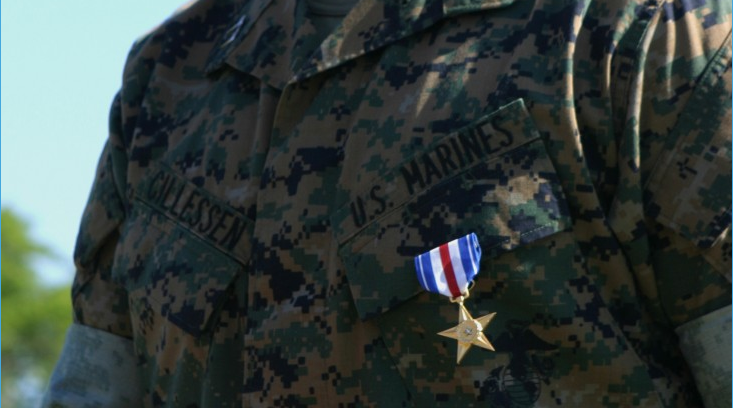Rising tuition has long been a favorite gripe of college students, as those of us not blessed with the resources to get through education attempt to reconcile the harsh reality of paying many thousands of dollars per year and possibly going into debt with the harsher reality of mind-breaking work and GPA-breaking stress. For some, joining the United States military is the solution, whether receiving a free or subsidized education and then serving on active duty for four years or enlisting straight out of high school and attending college on the GI Bill. While giving up a great deal of personal independence and privacy for a four-year stretch (or longer) is no doubt a challenge for all servicemen and servicewomen, practicing Jews may face unique difficulties in their military careers.
Jews have served in the US Armed Forces since the Forces’ inception. Even before the creation of the independent US, Jews (mainly of Spanish and Portuguese descent) served in the colonial militias and then fought on both sides of the Revolutionary War, despite their being barred from many states’ forces. Most sided with the rebels. There is even a heartwarming, although highly factually-questionable, story about a discouraged George Washington drawing morale and strength from a Jewish soldier’s retelling of the Chanukah story during the grim days of Valley Forge.
However, Jews have often experienced great difficulty in military service. Observance of Shabbat and kashrut can be all but impossible, especially in combat deployment. Lieutenant Meyer Birnbaum, a veteran of World War II, wrote about the challenges he faced during his World War II deployment in Lieutenant Birnbaum (ArtScroll Publications). Birnbaum describes eating nothing but fruit and some canned food for many of his meals, and cooking out of his steel helmet for others on the way to liberate Buchenwald.
The armed services also have a long history of anti-Semitism. For example, a World War I-era manual for Army recruits warns that “[t]he foreign born, and especially Jews, are more apt to malinger than the native-born.” The manual was only recalled in 1918 after members of the Anti-Defamation League protested its publication to President Woodrow Wilson. Jews were subject to harassment in the military during World War II, as Birnbaum describes — a soldier could be taunted for engaging in private prayer or disciplined for wearing a kippah or other headcovering during mealtimes. Dr. Joseph Bendersky of Virginia Commonwealth University wrote an entire book on anti-Semitic policies of the US Army. Today, anti-Semitism is not tolerated in the military, although problems with Christian evangelicalism continue.
In contrast to the overall US military, Jews have experienced little anti-Semitism in the Reserve Officers’ Training Corps (a college-based program for training commissioned officers), according to a 2010 New Voices article. Perhaps because the program takes place on college campuses, where students have more autonomy and may experience less stress and tension than while on active duty, Jewish ROTC cadets “report experiencing little anti-Semitism while training” and even teach fellow cadets about Jewish culture and practice.
Today, many organizations are dedicated to easing military life for the Jewish soldier, marine or pilot. Jews in Green and GIJews.com are organized by Jews in the Services and Chabad provides care and camouflage kippot through the Aleph Institute’s Military Program. Special chaplaincy programs such as the Jewish Chaplains Council and Yeshivas Pirchei Shoshanim bring religious guidance, services and even sukkot to Jews serving in combat zones. Websites also offer suggestions on how to deal with situations involving conflicts between Judaism and military law, such as Shabbat observance. Jews in Green explains that while the number of Jews currently on active duty is difficult to estimate, due to some personnel’s fear of being singled out or given harsh treatment if captured in battle, there are between 3,000 and 10,000 Jews in the military.
For the Jewish Bruin in ROTC, military life may not be simple or easy. But with some creative thinking and planning, a successful military career can be a good way to start out in the working world while serving one’s country. And, of course, a good way to pay for college.

